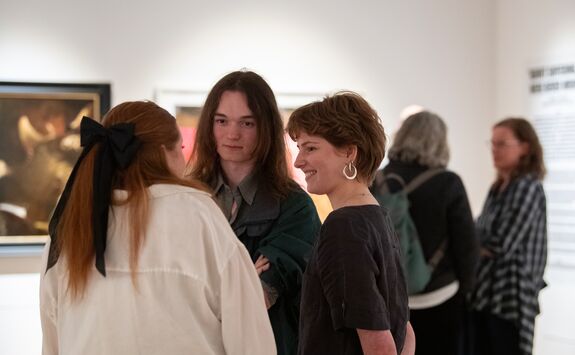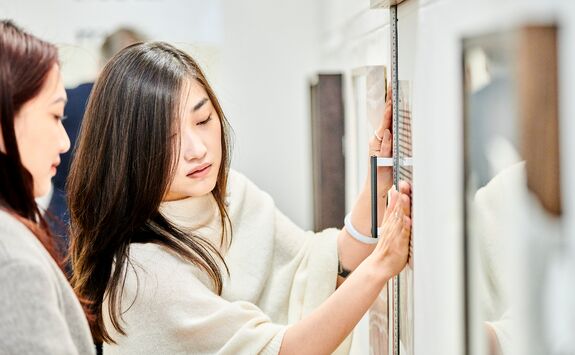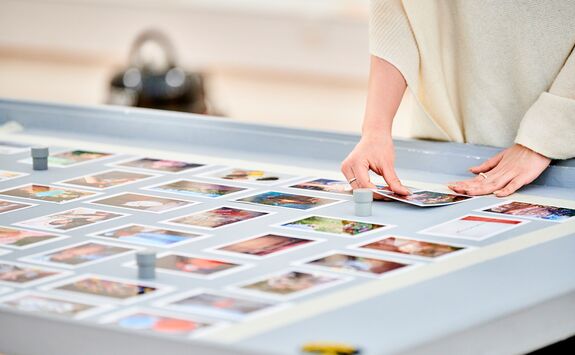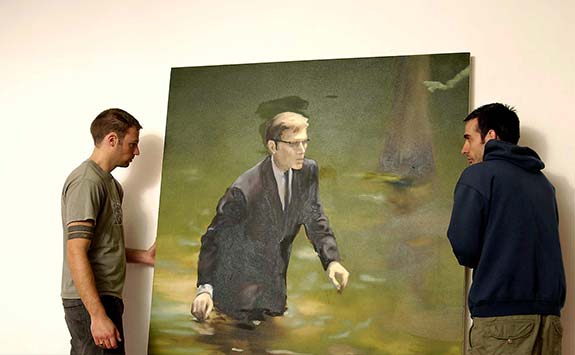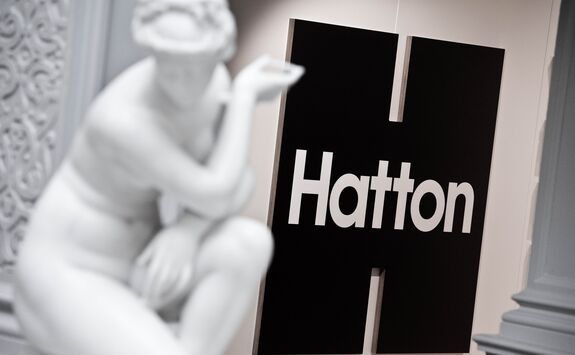Art History at Newcastle
Fiona Anderson
Senior Lecturer in Art History
I'm a Senior Lecturer in Art History. I have a PhD in American Studies from King’s College London (KCL) and a BA and MA in History of Art from the Courtauld Institute of Art. My research and teaching explores LGBTQ+ and feminist art and art history from the 1970s to the present, mostly in Europe and the USA.
I am particularly interested in art and art history in the context of the ongoing HIV/AIDS crisis, how ephemeral queer cultures might be archived or otherwise preserved through art and writing, and the relationship between art and music.
Richard Clay
Most of my published research has focused on aspects of iconoclasm’s histories, but I’ve also written about:
- contemporary jewellery as sculpture
- Matthew Boulton and mass produced art of the 1790s
- graffiti’s roles in armed conflict
- cross-sector collaboration
- the roles of the digital in cultural collections’ display spaces
Most of my films are freely available online and my BBC Radio 4 documentary, Two Minutes to Midnight, is accessible via the BBC website. I’ve also led and worked on a wide range of externally funded projects.
Katarzyna Falęcka
Lecturer in Art History
I specialise in modern and contemporary art from Northern Africa and its diasporas, with a particular focus on questions of archives, memory and gender.
My first monograph Photographic Afterlives: Art, Archives and the Algerian War of Independence is currently under contract with Manchester University Press. The book explores the work of contemporary artists who engage with the photographic archives of Algerian decolonisation against the background of ongoing restitution discussions, as well as a surge in independent archiving projects in Algeria.
Prospective PhD students working on modern and contemporary art, colonialism, archives, gender, memory, transregional cultural exchanges, and photography are welcome to submit a research proposal.
Edward Juler
Senior Lecturer
I lecture on Art History in the Fine Art Department. My expertise is in Anglo-French modernism, and how modern art was shaped by science and medicine in the period 1900-1950. My current research explores colour and emotion in early 20th century French art, with a focus on the work of Matisse, Kupka, Delaunay and Bonnard.
I have published on British sculpture, biocentric modernism, Surrealism and the work of Karl Blossfeldt. In 2021, I co-edited the volume Post-Specimen Encounters between Art, Science and Curating (Intellect Books). This book examines how scientific and medical objects in museums and other collections can act as inspiration to contemporary art practice, curating and aesthetics. My articles have been published by, among others, History of Photography, Interdisciplinary Science Reviews and the Tate.
I welcome enquiries from prospective Art History PhD students on these topics: European artistic modernism, Surrealism studies and art-science relations c.1900-1950.
Stephen Moonie
Senior Lecturer
I specialise in the art and theory of the post-war United States, with a particular interest in the critical discourse of modernism in the 1950s and 1960s. More broadly, I'm interested in art writing and contemporary painting.
Previously, I taught at the Department of History of Art at the University of Warwick. I completed my MA (Hons) at the University of St Andrews, and completed my MA and Ph.D. at the University of Essex.
Olga Smith
NUAcT Fellow - Culture and Creative Arts
I am an art historian specializing in contemporary art. My research interests evolved over time to include interchanges between art and intellectual ideas, trans-national identity, cultural memory and, most recently, ecology.
My current research is broadly concerned with the role of visual culture in shaping a cultural response to current environmental crises, and is specifically directed at analysing the representations of landscapes through an ecocritical framework.
I am affiliated with New International Center for the Humanities and Social Change at Ca' Foscari University, Venice, and Environmental Humanities Network at the University of Warwick, which I helped to establish. I am the co-founder of Ph, an AHRC-funded network of scholars and artists working with photography, which collaborated on projects such as Either/And.
This has been one of the projects that I developed with an aim of engaging wider audiences, alongside curatorial and public programme events developed in partnership with museums, galleries and arts organisations including the Photographers’ Gallery, National Media Museum, and Paris Photo. I am on the editorial board of Focales journal (France) and write for art press.
Harry Weeks
Lecturer in Art History
I am a Lecturer in Art History in the Fine Art department at Newcastle University, specialising in the politics of contemporary art production, and histories of socially engaged art practice.
My current research examines artists' second jobs and their impact on art production. This was supported by a Terra Foundation Travel Grant in 2023 to conduct archival work on Los Angeles-based feminist collective The Waitresses.
Prior to joining Newcastle University, I was Teaching Fellow in Contemporary Visual Cultures at Edinburgh College of Art, The University of Edinburgh (2016-19) and IASH Postdoctoral Fellow, also at The University of Edinburgh (2015-16)
